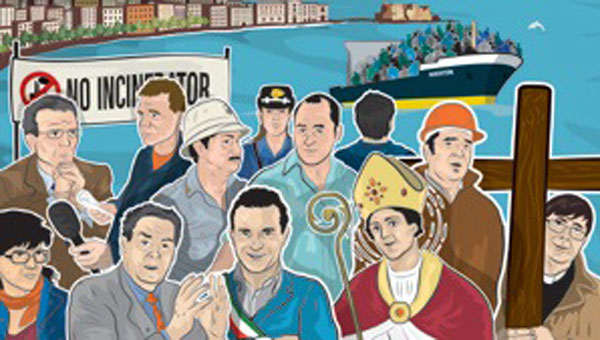
Zero Waste (nul afval) is een ethisch, economisch, efficiënt en visionair doel. Het dient als richtlijn voor mensen in het veranderen van hun levensstijl en dagelijkse praktijk voor het nabootsen van duurzame natuurlijke cycli, waar alle afgedankte materialen zijn ontworpen om te worden hergebruikt als grondstoffen voor anderen. Zero Waste betekent het ontwerpen en beheren van producten en processen om structureel giftige stoffen in het afval te voorkomen en te elimineren. Afval dient niet verbrand of begraven te worden. Uitvoering van Zero Waste betekent het elimineren van alle lozingen in grond, water of lucht die een bedreiging vormen voor de gezondheid van de planeet, mens, dier of plant.
(Volgens de Zero Waste International Alliance in 2004)
Mensen bewustmaken, inspireren en motiveren om Zero Waste te omarmen. We willen dit doen door vele zero waste initiatieven en verhalen te bundelen in één website. De zero waste heroes zijn allemaal op hun eigen wijze bezig met afval en fungeren als rolmodellen. Zero Waste Heroes wil graag alle initiatieven letterlijk en figuurlijk in kaart brengen, zodat we gezamenlijk bewust worden en het aantal initiatieven kunnen uitbreiden. Uw mening, feedback en initiatieven kunnen dan ook via deze site worden opgegeven.
Zero waste is een theorie over afvalreductie. Volgens het zero waste principe is het mogelijk om de productie van afval te reduceren en zelfs een punt van ‘zero waste’ te bereiken. Dat betekent: een einde aanvuilstortplaatsen en verbrandingsinstallaties.
Gaat u al bewust om met afval? Bouw mee aan de community en vertel erover op deze site! Zo inspireert u anderen om zelf met zero waste aan de slag te gaan en mee te helpen aan een afvalvrije samenleving. Op de interactieve kaart voegt u uw activiteiten toe. Zero Waste Heroes wil graag alle initiatieven letterlijk en figuurlijk in kaart brengen, zodat we gezamenlijk bewust worden en het aantal initiatieven kunnen uitbreiden.
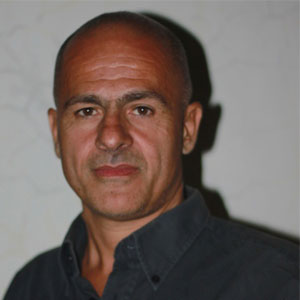
“Man is the only living being to produce waste that cannot be assimilated or recycled.” I learned about the theory of Zero Waste by chance, having read an article that appeared online in a national daily newspaper. This led me into the whirlwind: I met Rachelle Strauss, then Paul Connett and got to know about their projects. And then, unexpectedly, there came the landslide municipal election victory of Luigi De Magistris, an ex-prosecutor who through his innovative environmental policies aims to meet the challenge of revitalizing Naples, while at the same time piles of garbage on the streets are putting the health of its citizens at risk. I’m from Naples, and my land is one of the most marvellous and fertile in the world. Roberto Saviano has rendered it sombrely famous in his book, “Gomorra”, which is to a large extent about the garbage gold mine. The Campania region is a land both beautiful and blighted: blighted by the economic and political mismanagement which forces it into a continual battle against the cancer of waste dumping. There are no fewer than three hundred waste dumps in Campania, one every 40 kilometres. In our part of the country the mortality rate from cancer-related disease is the highest in Italy. It is tantamount to an epidemic. Campania mirrors, openly, violently, pulling no punches, something which is in fact a far wider phenomenon, one with which rich countries as well as developing nations are having to come to terms. It is about the questions of refuse, of consumerism and environmental awareness, and it amounts to a global emergency. By the year 2030 there will be more than 8 billion people on this earth. It is too late to prevent the birth of the 2030 generation, but there is still time to change our lifestyles and save both ourselves and the planet.
“De documentaire heeft als doel mensen bewust te maken van het afvalprobleem. Het platform Zero Waste Heroes neemt vervolgens het stokje over van de film. We tonen echte projecten van echte mensen bij de kijker in de buurt. Deze Zero Waste Heroes fungeren zo als rolmodellen en bieden bezoekers inspiratie om zelf ook aan de slag te gaan. We willen van de site de ontmoetingsplaats maken voor een ieder die het afvalprobleem serieus neemt en bereid is actie te ondernemen.”
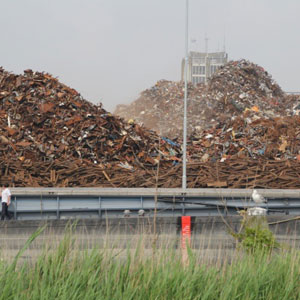
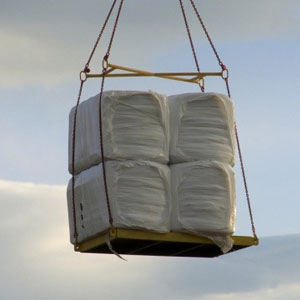
Afval overslag haven van Amsterdam
“De strijd van de Napolitani tegen het afval staat symbool voor een wereldwijd en levensbedreigend probleem. Volgens het boeddhisme zijn we zelf verantwoordelijk voor onze omgeving en ons milieu. Met deze film hopen wij dit initiatief, dat overigens al sinds de jaren 70 bestaat, een positieve impuls te geven en mensen te laten zien dat alle veranderingen beginnen bij onszelf. Want het is nog niet te laat om ons gedrag te veranderen.”
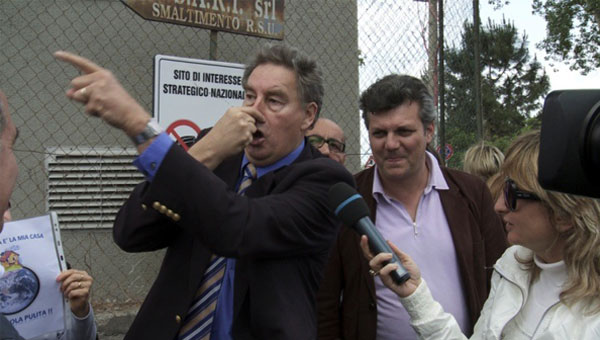
I thought this film was brilliant. It covers the issue on so many levels: the zero waste itself; the contradictions of Naples; the politics; the history; the mafia and the personal dilemma of both the mayor and vice mayor who want to do the right thing but the Naples situation makes it very complicated. Zero Waste is critical in my view to achieving a sustainable future for our planet. I would hate the future of Zero Waste to hinge on whether Naples can overcome all the obstacles in its path. For me personally the film is both flattering and embarrassing: it captures me at my emotional best and worst. But more than anything else the film is honest. The two most exciting places in the world on Zero Waste right now are California and Italy. Over 200 communities in Italy have declared Zero Waste and many are getting over 70% diversion (including Salerno) from landfill and other forms of disposal and some over 80% and one or two over 90%. For Naples the key is to get the clean organics collected separately and composted. But the city is finding it difficult to site a composting facility – that shouldn’t be so complicated. When the city asked for bids from companies willing to operate such a facility they received no bids. That is strange and suggests to me that there are forces that are trying to prevent this from happening. Sad, because those forces are wasting lives and the future for the citizens of Naples. Basta. Basta.
For me personally the film is both flattering and embarrassing: it captures me at my emotional best and worst. But more than anything else the film is honest.